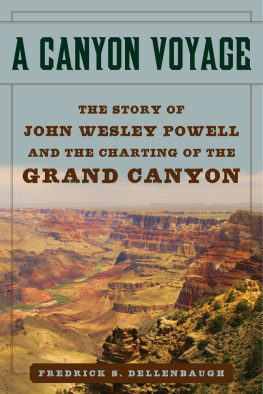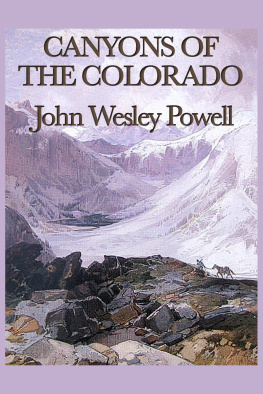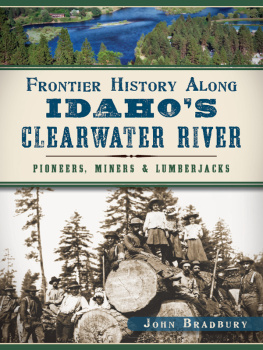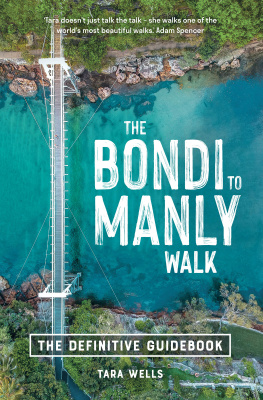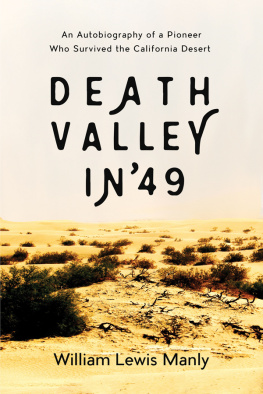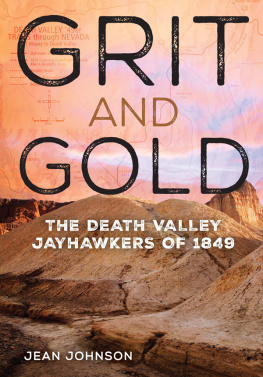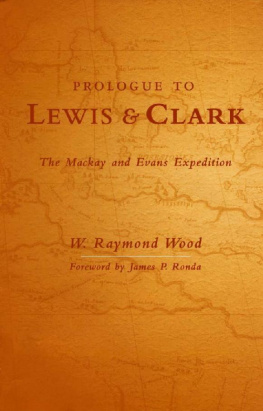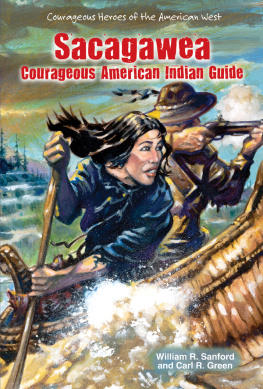Michael D. Kane received his BS, MS, and PhD from the University of Utah, studying recreation and hospitality management. Under his direction, Zion Ponderosa Ranch Resort has been named one of the Top 6 adventure resorts in America by U.S. News and World Report. He is also an instructor and a former director of basketball operations for the University of Utah and an advisory council member to the University of Utah Department of Parks, Recreation, and Tourism.
His research into the historical documents from the 1800s to present, and then his experiences following the trail of William Lewis Manly in a dugout canoe and on foot, helps him re-create routes taken, hardships shared, and the benevolent brotherhood demonstrated by these American forty-niners and the American Indians they encountered. Kane lives in West Jordan, Utah.
WILLIAM LEWIS MANLY STANDS AMONG AN ELITE GROUP OF AMERICAN explorers. Few people of his time were willing to set out into the great unknown, as John Wesley Powell put it, and discover what lies beyond the edge of the map. This fraternity of frontiersmen had daring and courage, and their accomplishments are deeply woven into the fabric of early American western history as generations of settlers have followed their determination and the trails they blazed.
Though these explorers were spread out over the nineteenth century, their writings and views are strikingly similar. Meriwether Lewis, William Clark, John Wesley Powell, William H. Ashley, and William Lewis Manly were all explorers of the American West who had a deep sense of adventure and an abiding respect for the untamed lands they trod daily. (Though each took into account the peoples already living on these lands, none would have acknowledged that this made the land any less wild and untamed.) Their words and characteristics further reveal commitment to the path they chose.
Meriwether Lewis, who together with William Clark led a two-year expedition to explore the Louisiana Purchase, wrote:
We were now about to penetrate a country at least two thousand miles in width, on which the foot of civillized man had never trodden; the good or evil it had in store for us was for experiment yet to determine, and these little vessells contained every article by which we were to expect to subsist or defend ourselves.... I could but esteem this moment of our departure as among the most happy of my life.
Meriwether Lewis was likewise branded by his biographer as a man of high energy... but this was tempered by his great self-discipline.... He was born to leadership, and reared for it, studied it in his army career, then exercised it on the expedition.... He knew his profession and was proud of it and one of the best at it.
Writing of his experiences exploring the Grand Canyon six decades later, John Wesley Powell displayed the same adventurous spirit, tempered by both anticipation and anxiety:
We are now ready to start on our way down the Great Unknown.... We are three quarters of a mile in the depths of the earth.... We have an unknown distance yet to run; an unknown river yet to explore. What falls there are, we know not; what rocks beset the channel, we know not; what walls rise over the river, we know not. Ah, well! We may conjecture many things. The men talk as cheerfully as ever; jests are bandied about freely this morning; but to me the cheer is somber and the jests are ghastly.
On another occasion, Powellwhose biographer called him a man of almost pathological optimismwrote:
At one time, I almost conclude to leave the river. But for years I have been contemplating this trip. To leave the exploration unfinished, to say that there is a part of the caon which I cannot explore, having already almost accomplished it, is more that I am willing to acknowledge, and I determine to go on.
Though William H. Ashley left behind scant records, he was cut from the same cloth as his fellow explorers. This pioneering mountain man who traversed the American West trapping beaver was eulogized by Rev. William G. Eliot in 1838 as the most efficient leader that he ever knew.
Ashley demonstrated to himself and his men... his own strength, courage, and resourcefulness in the face of physical challenge and danger. Although he was often intense, he carefully controlled his outward emotions and responses, giving the impression not only of a maturity beyond his years, but a determination, perseverance, steadiness, and restraint, which set him apart from ordinary frontier emigrants.
Looking back on his own adventures, Manly expressed the same willingness to explore lands unknown:
Reading people of to-day, who know so well the geography of the American continent, may need to stop and think that in 1849 the whole region west of the Missouri River was very little known; the only men venturesome enough to dare to travel over it were hunters and trappers who, by a wild life had been used to all the privations of such a journey, and shrewd as the Indians themselves in the mysterious ways of the trail and the chase.
Manlys character was forged in his explorations when things grew dire. Confronted with the possibility of his own demise in the harsh deserts of southern Californias Death Valley, he wrote:
I tell you, friends, it was a trying moment. It seemed to be weighed down with all the trails [sic] and hardships of many months. It seemed to be the time when helpless women and innocent children hung on the trembling balance between life and death. Our own lives we could save by going back, and sometimes it seemed as if we would perhaps save ourselves the additional sorrow of finding them all dead to do so at once. I was so nearly in despair that I could not help bursting in tears, and I was not ashamed of the weakness.
Besides determination and frontier grit, this group of early Euro-American explorers also shared an appreciation for the beauty, majesty, and inspiration of the land. Meriwether Lewis wrote:
I had a most pleasing view of the country, perticularly of the wide and fertile vallies formed by the missouri and the yellowstone rivers, which occasionally unmasked by the wood on their borders disclose their meanderings for many miles in their passage through these delightfull tracts of country.
Manly likewise described his feelings about the wilderness he encountered:
And now to see the clear, pure liquid, distilled from the crystal snow, abundant, free, filled with life and healthand write it in wordsthe song of that joyous brook and set it to the music that it made as it echoed in gentle waves from the rocks and lofty walls, and with the gentle accompaniment of rustling treesa soft singing hush, telling of rest, and peace, and happiness.
As Powell journeyed down the Green and Colorado Rivers, he was impressed with the simplicity and beauty of the water flow and surrounding areas, writing: The curves are gentle, and often the river sweeps by an arc of vertical wall, smooth and unbroken, and then by a curve that is variegated by royal arches, mossy alcoves, deep, beautiful glens, and painted grottos.
All five men appreciated the lands they traversed and lived for exploring them. William Manly, though standing in the shadows of the others accomplishments, displayed similar character traits and wrote of his experiences in similar language. Like the other four explorers, he left his mark on the map of the American West.
WHEN HORACE GREELEY DECLARED, GO WEST, YOUNG MAN, AND grow up with the country, thousands of hardy souls took up the challenge, and throughout the nineteenth century, countless stories of adventure from the western frontier wove their way into the fabric of Americana. These pioneers envisioned open lands and boundless opportunities in the uncharted territories of the West as they followed the setting sun toward towering mountains and unknown rivers. One such young man was William Lewis Manly.


